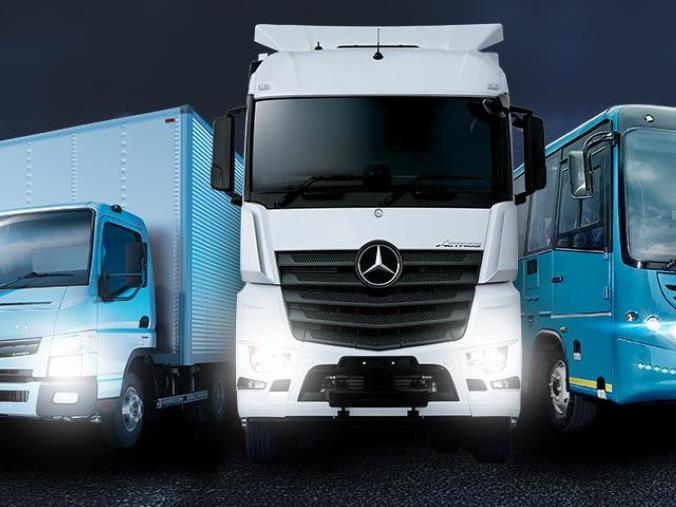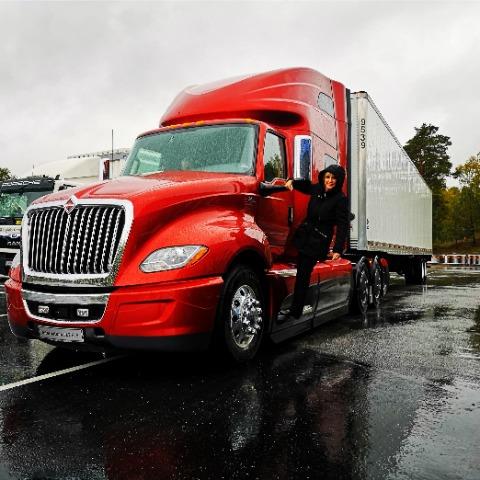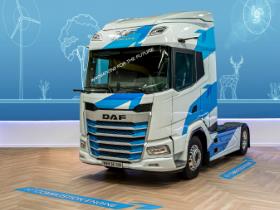Firstly and foremostly, what are the benefits of the new structure to customers?
Our intention is to create value and increase our competitiveness through an even sharper focus. Our customers will gain solutions tailored to their specific business needs. Many of the world’s most successful truck companies have one thing in common – they are nothing but truck companies. Full focus is paramount for optimal performance. Our customers will continue to benefit from our fully integrated value chain approach for trucks and buses – such as finance offerings, TruckStore, FleetBoard, Mercedes-Benz Uptime, Service24h, TruckParts, Training and FUSO Value Parts.
You have invested up to R1 billion in the new setup. Can you please clarify this investment and what the money was spent on?
The investment of up to R1 billion will cover the establishment of the new dedicated captive financial and mobility service for Daimler Trucks & Buses Southern Africa (DTBSA), namely Daimler Truck Financial Services South Africa.
We have invested in new property for the sales and marketing campus in Centurion in 2022, bringing us closer to our retail and used business and allowing us to be even closer to our customers.
A portion of the investment will also be allocated to the continuous development of the East London plant to ensure that it has the right equipment to be future-proof and to further support the company’s growth plans for the region. And, last but not least, DTBSA will also invest in our own retail business to support the growing needs of our customers within the markets in which we operate.
It has been said that the split will allow the separate companies to focus on their core markets and different emission-free technologies in a bid to challenge the likes of Tesla. But surely this is what you have been doing all along? Or did the car business somehow limit you?
As an independent company, we can make the best decisions for the future of DTBSA. We can invest in a more focused way, benefit from direct access to the capital market and have greater flexibility to join partnerships unique to our industry. This will enable us to drive the transformation of our business forward in a more agile and focused way amidst a highly competitive environment.
We intend leading the way to zero-emission transportation by accelerating the development of battery and fuel cell vehicles – with our own prowess and with strategically sound partnerships. Both technologies are necessary and compatible. Battery-powered trucks are operated in the medium and heavy distribution segments, e.g. for delivering goods in cities. Hydrogen-based fuel cell drive will, in our view, be essential for the CO2-neutral long-haul trucks of the future.
How different will the “new” DTBSA be from a customer point of view? Practically, what changes will customers notice?
Following the step one changes that took place in 2019, DTBSA had already started operating as a stand-alone entity, which means that our structure and teams were already fully dedicated to the truck and bus business. The new DTBSA structure will not change the daily operations of the business and the way we have been supporting our customers. With a dedicated and customer-centric corporate set-up going forward, this will allow the company to continue to drive a sustainable transport system to better serve the growing business needs of the southern African market. Lastly, this will provide us with entrepreneurial freedom as well as the ability to unlock the full potential of DTBSA.
What has happened from a staffing point of view? Have more jobs been created?
As DTBSA, we would like to take advantage of growth opportunities for our people. Our goal is to ensure safe, attractive jobs in the long term. We strongly believe in the southern African market and its people. It is for this reason that the company is transitioning with the same amount of people and adding new hires. Within the group of companies, we will proudly boast a staff complement of 800 blue and white-collar employees by the end of 2022 and an additional +- 50 new hires. And we can proudly confirm that all collective agreements and company benefits remain in place.
Are all back-end functions also completely separate (cars vs CVs)?
On 1 December 2021, DTBSA officially transitioned into a 100% completely independent and wholly-owned subsidiary of Daimler Truck AG. Practically, what this means is a complete separation of the passenger car business and commercial vehicle business with no future integration. As such all back-end functions will be completely separate. Thiis allows for IT systems and procurement processes, for instance, to be tailored even more precisely to the respective car and truck company requirements.











